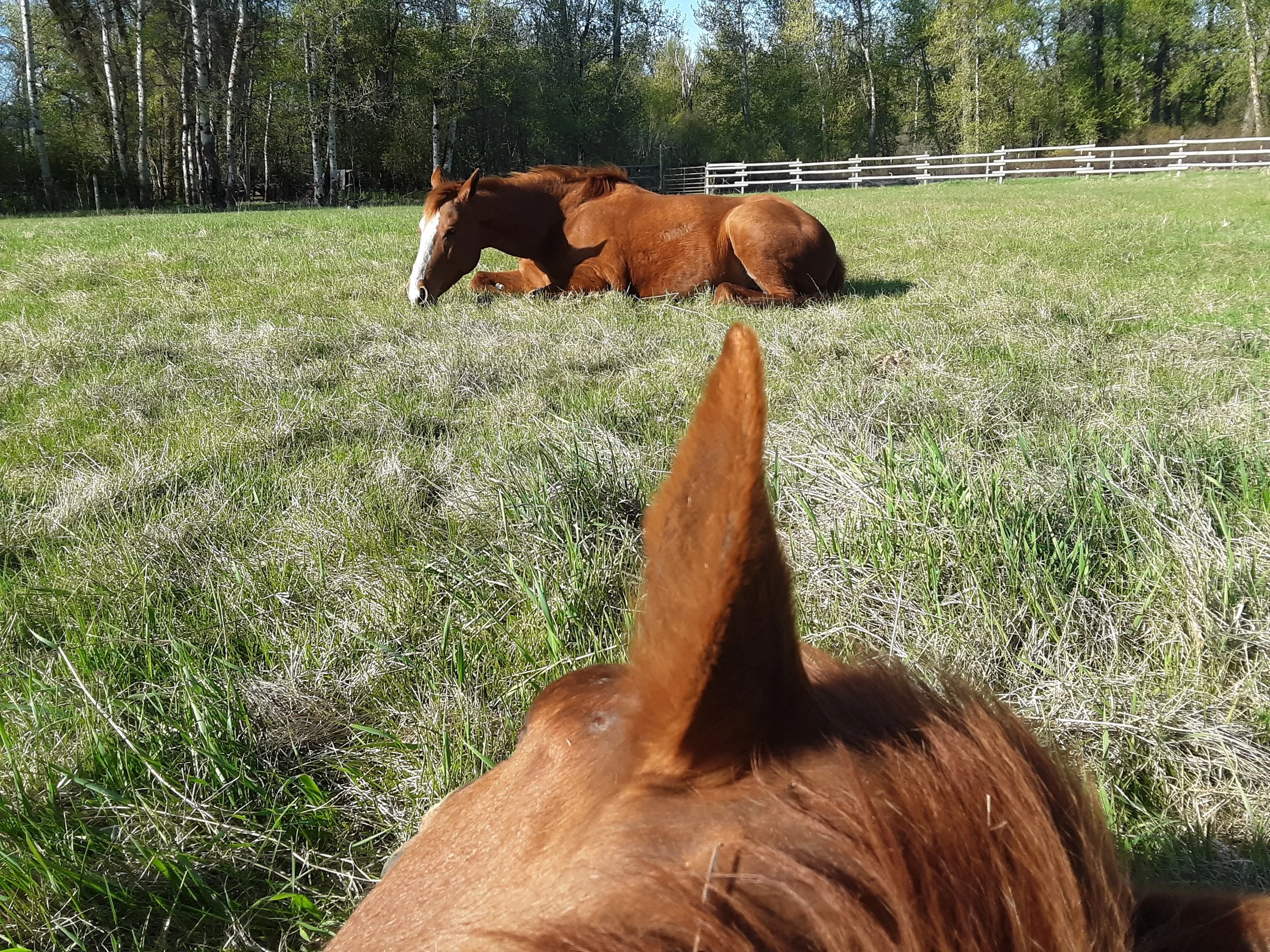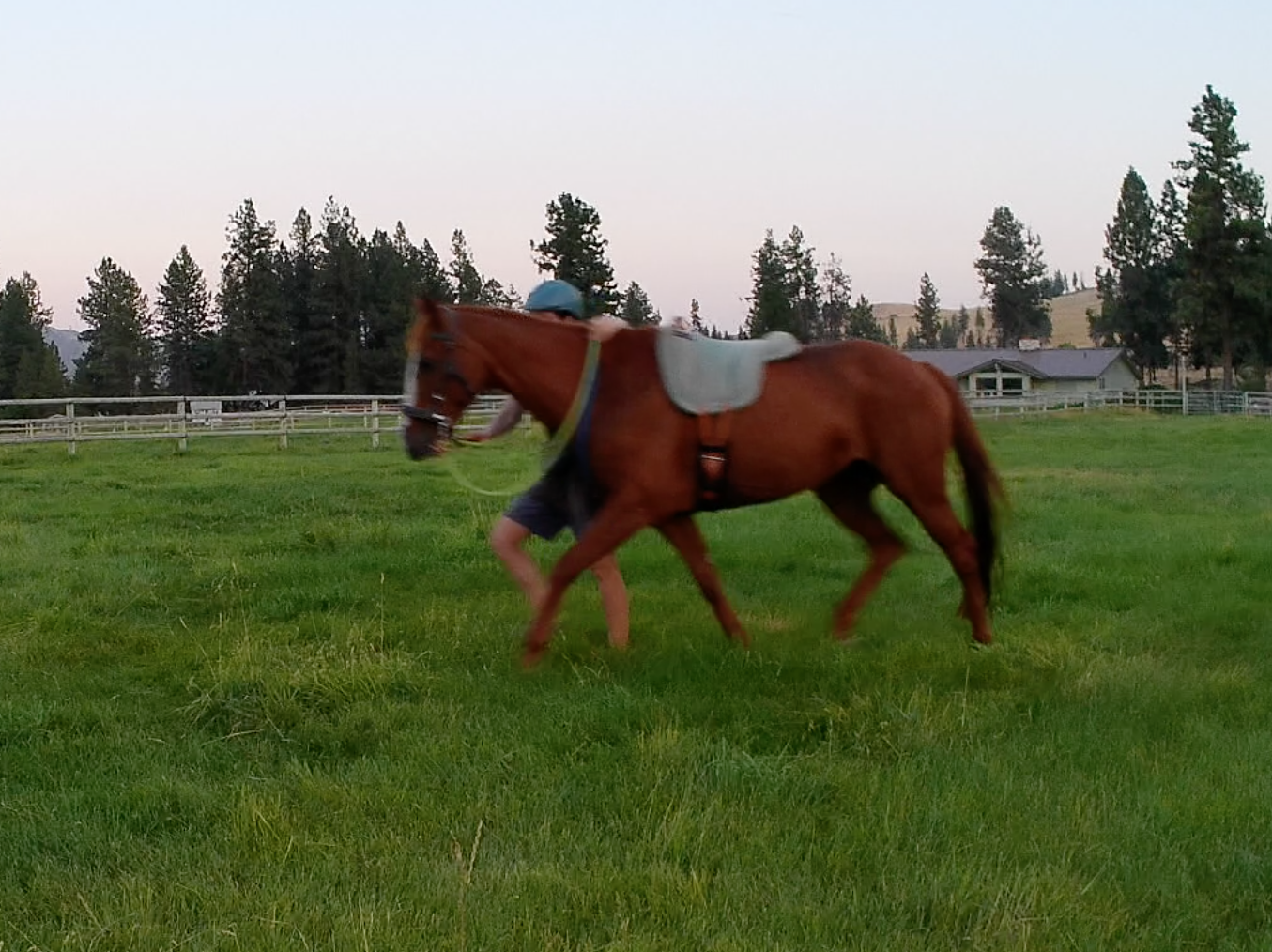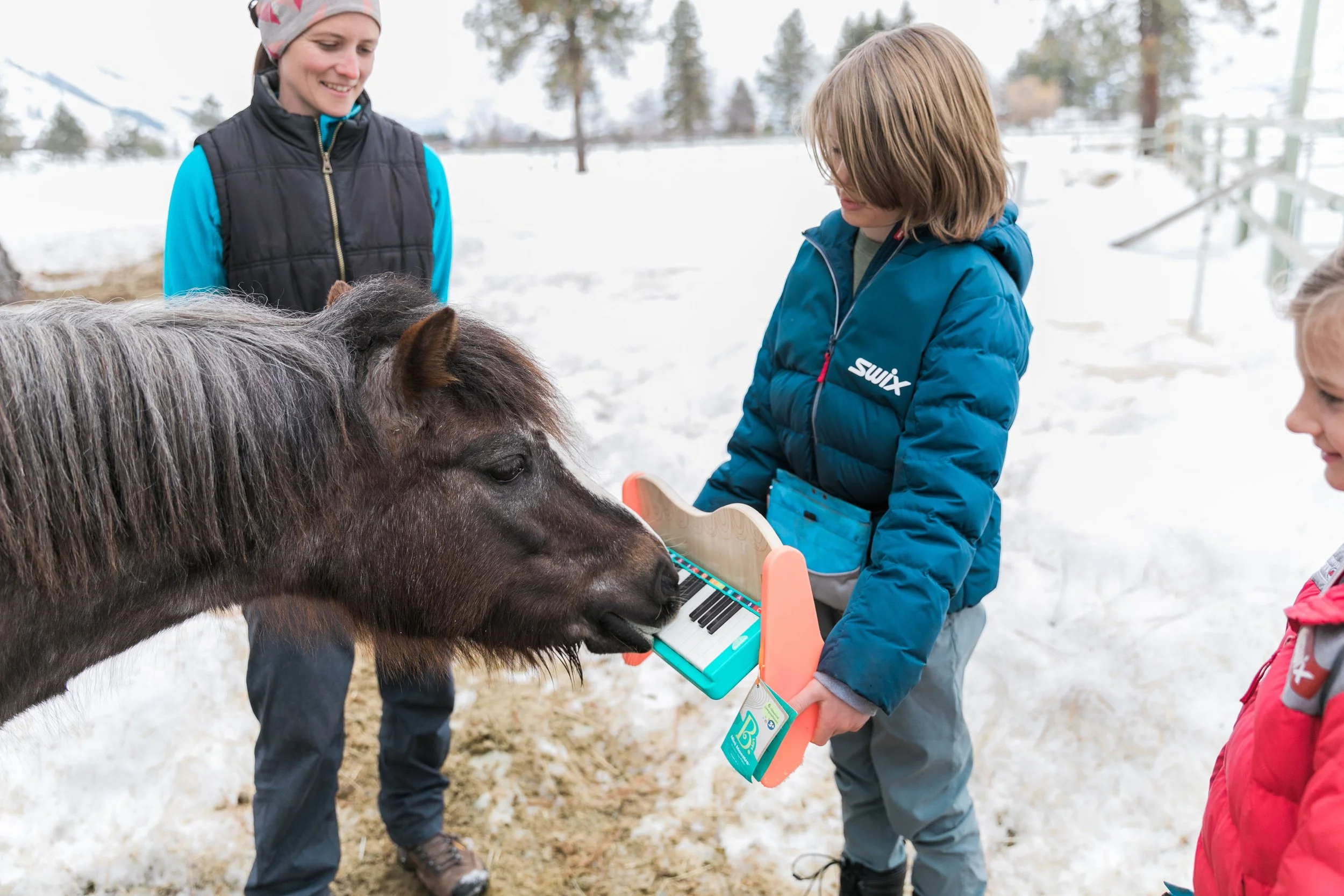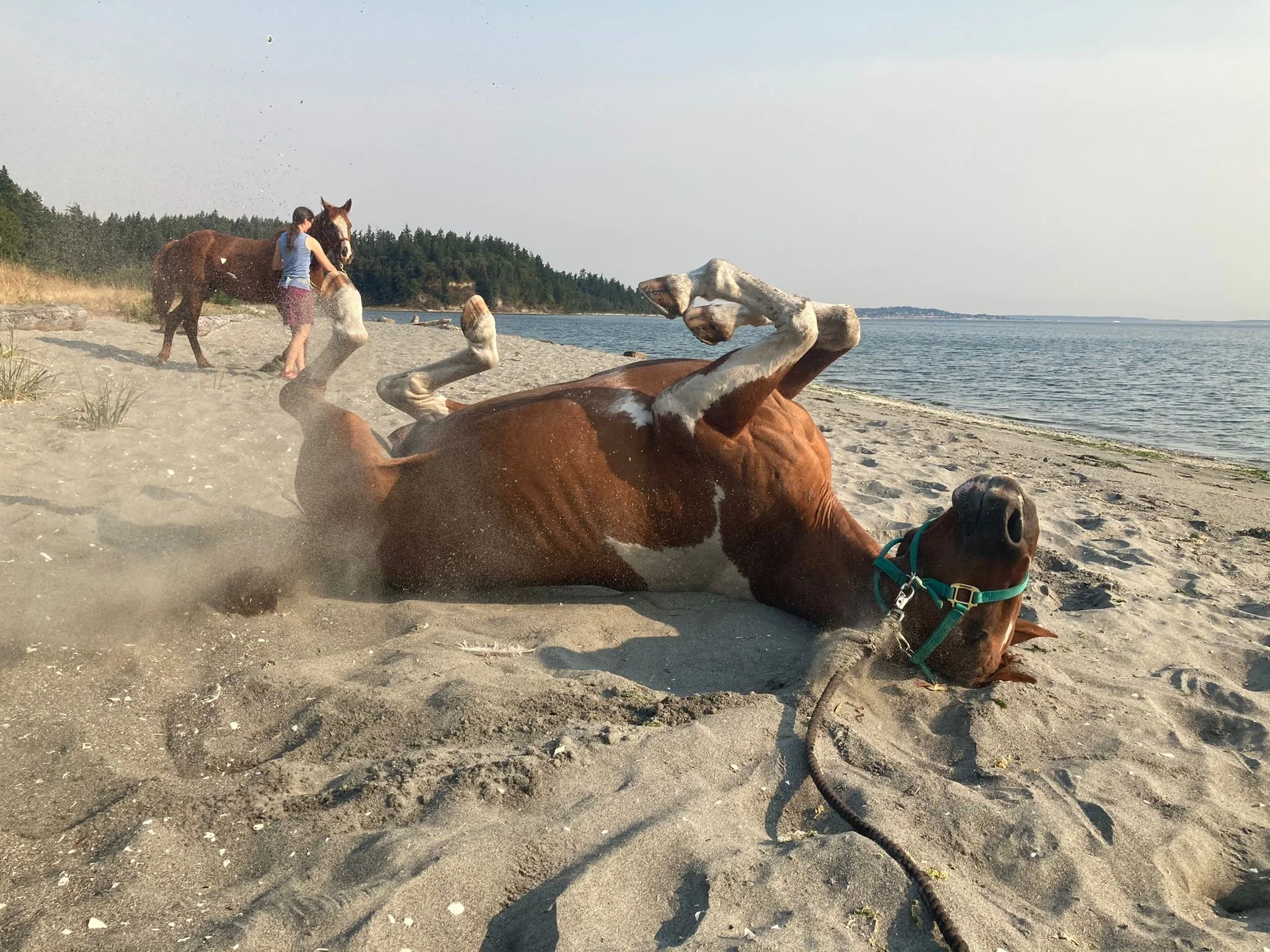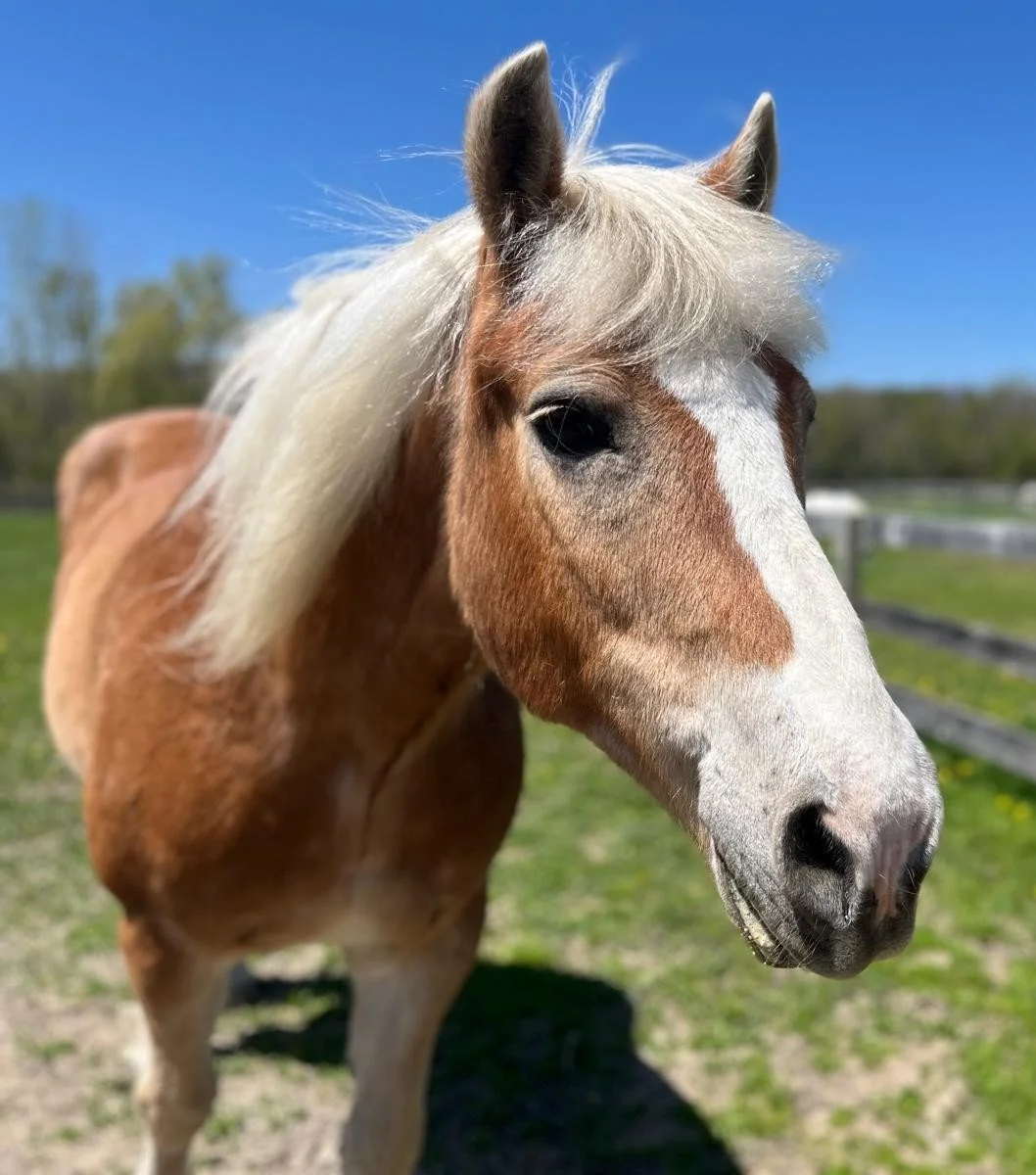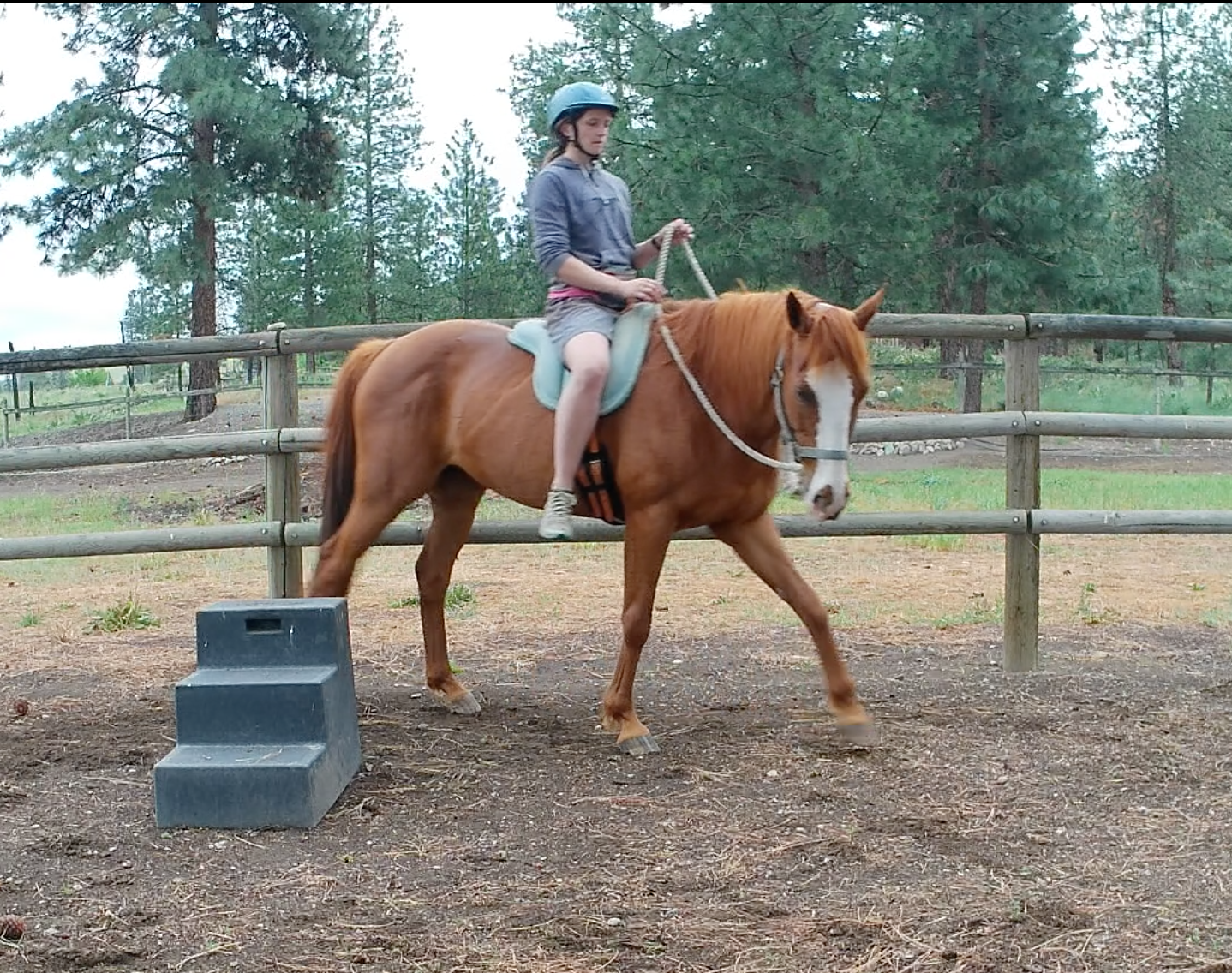Philosophy
Basic Needs and Enrichment
Horses deserve to have their basic needs met and to live an enriched life. They need movement, friends, nutrition, and healthcare. In our domestic environment, it can be challenging to meet these needs. Thoughtful environmental arrangements in addition to training becomes essential in most domestic environments to provide horses with physical and mental enrichment, and to help them comfortably participate in husbandry procedures and daily care.
Listening
Horses deserve to be listened to. Behavior is never random- all behavior has a purpose. It is our job to learn to listen to our horses; to educate ourselves on equine body language, signs of pain or discomfort, and physical imbalances or lameness. We want to shape a smaller and smaller “No” answer from our horses. They don’t need to yell anymore- they can whisper, and they will be understood. Imagine what a different world we would live in if we learned to listen to one another in the same manner.
Working with horses is a journey into mindfulness. If we let them be the teachers, we can learn so much about our own movement, thoughts, breathing, and relationships.
Balance
Physical and emotional balance are essential for a happy, healthy horse. It is our responsibility to help the horse learn to carry themselves in a way that will promote long term soundness and learn to feel safe and happy in their environment.
Photo by Andrea Laughery, andrealaughery.com
Joy
Joy is the piece that brings it all together. Joy for us, joy for our horses, joy for each other. We can find fulfillment in the time spent with our horses, while also meeting their needs and giving them a voice.
For me, there is joy in the timeless rhythms horses provide. The rhythm of the day, of their footfalls, their breathing, their nap times, and their play. They help me see and celebrate the joy inside myself.
Ethics
The welfare of the human and horse are my top priority. I recognize that in domestic situations these are complex topics with many facets to consider. I will always do my best to look at the big picture as well as small details to ensure we are working in a way to ethically meet the needs of horse and human.
I will do my best to adhere to industry standards for ethical behavior change in animals (Standards | IAABC Foundation), while always looking at each living being as an individual in a world of conflicting factors. I will draw from multiple disciplines and partnerships with collogues to help navigate the complexities of equine welfare in our domestic environment.
I also firmly believe that joy and love are essential in all our interactions. I will strive to always make these a part of my interactions with humans, horses, and the environment.
Collaboration
There are many lenses through which we can view the world. The challenge is picking up the right one up at the right time. I take turns picking up the science and the art lens, sometimes looking through both at once. History helps us see where we came from and why, and what we might want to keep or let go of moving forward. Ethics enables us to translate what we see through the lenses into our actions.
I believe no one person has all the answers. There are no “magic” training solutions. We are all building off everyone else’s work in a web of expanding knowledge that can benefit us all. I am committed to taking a collaborative and interdisciplinary approach to horses, seeking discussions with other trainers, equine professionals, and people outside the horse world. Every person brings a unique perspective and experiences that we can use to help improve the welfare of our horses and our relationships with them.
I believe different perspectives are not only valuable but essential to improving equine welfare and having healthy communities.
